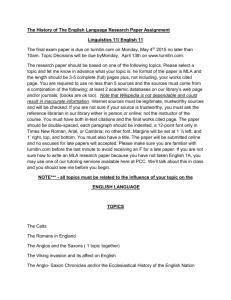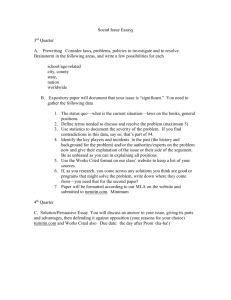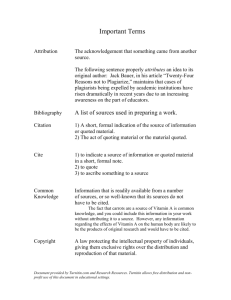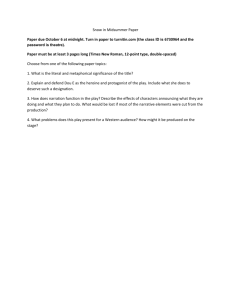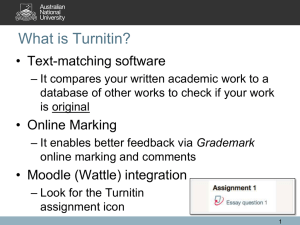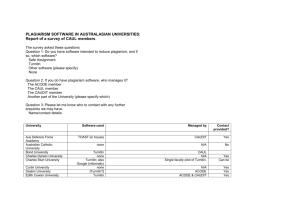Choose one of the following topics and write 700 words or less on it
advertisement
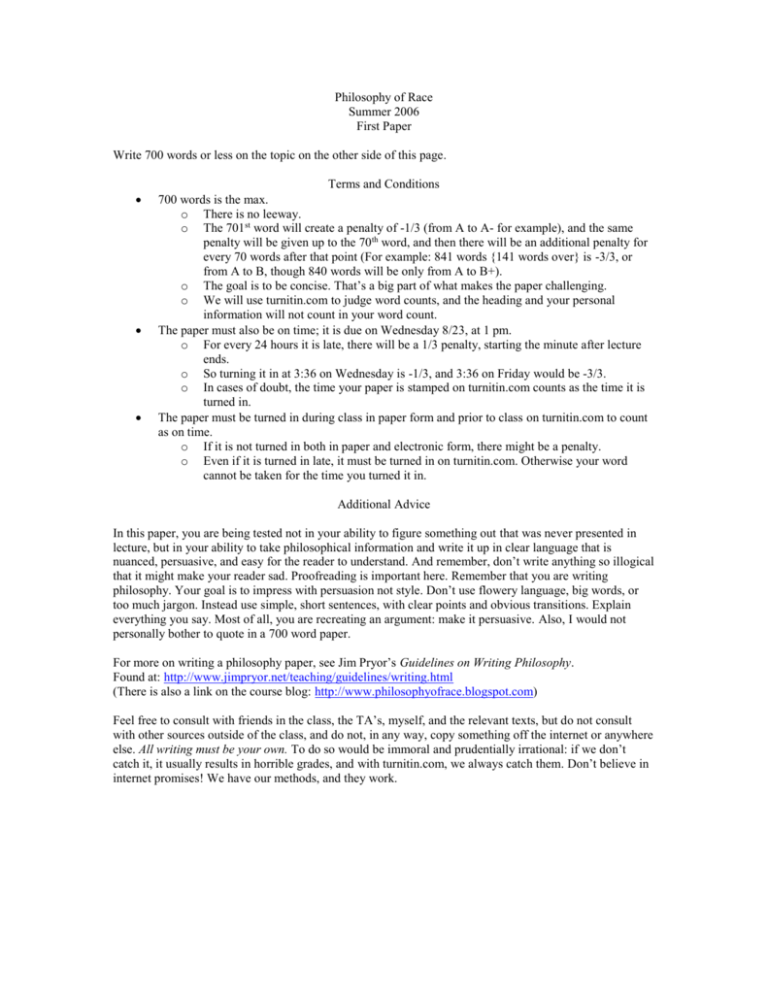
Philosophy of Race
Summer 2006
First Paper
Write 700 words or less on the topic on the other side of this page.
Terms and Conditions
700 words is the max.
o There is no leeway.
o The 701st word will create a penalty of -1/3 (from A to A- for example), and the same
penalty will be given up to the 70th word, and then there will be an additional penalty for
every 70 words after that point (For example: 841 words {141 words over} is -3/3, or
from A to B, though 840 words will be only from A to B+).
o The goal is to be concise. That’s a big part of what makes the paper challenging.
o We will use turnitin.com to judge word counts, and the heading and your personal
information will not count in your word count.
The paper must also be on time; it is due on Wednesday 8/23, at 1 pm.
o For every 24 hours it is late, there will be a 1/3 penalty, starting the minute after lecture
ends.
o So turning it in at 3:36 on Wednesday is -1/3, and 3:36 on Friday would be -3/3.
o In cases of doubt, the time your paper is stamped on turnitin.com counts as the time it is
turned in.
The paper must be turned in during class in paper form and prior to class on turnitin.com to count
as on time.
o If it is not turned in both in paper and electronic form, there might be a penalty.
o Even if it is turned in late, it must be turned in on turnitin.com. Otherwise your word
cannot be taken for the time you turned it in.
Additional Advice
In this paper, you are being tested not in your ability to figure something out that was never presented in
lecture, but in your ability to take philosophical information and write it up in clear language that is
nuanced, persuasive, and easy for the reader to understand. And remember, don’t write anything so illogical
that it might make your reader sad. Proofreading is important here. Remember that you are writing
philosophy. Your goal is to impress with persuasion not style. Don’t use flowery language, big words, or
too much jargon. Instead use simple, short sentences, with clear points and obvious transitions. Explain
everything you say. Most of all, you are recreating an argument: make it persuasive. Also, I would not
personally bother to quote in a 700 word paper.
For more on writing a philosophy paper, see Jim Pryor’s Guidelines on Writing Philosophy.
Found at: http://www.jimpryor.net/teaching/guidelines/writing.html
(There is also a link on the course blog: http://www.philosophyofrace.blogspot.com)
Feel free to consult with friends in the class, the TA’s, myself, and the relevant texts, but do not consult
with other sources outside of the class, and do not, in any way, copy something off the internet or anywhere
else. All writing must be your own. To do so would be immoral and prudentially irrational: if we don’t
catch it, it usually results in horrible grades, and with turnitin.com, we always catch them. Don’t believe in
internet promises! We have our methods, and they work.
Topic
John Stuart Mill writes:
His character is formed by his circumstances (including among these his particular organization);
but his own desire to mould it in a particular way, is one of those circumstances, and by no means
one of the least influential. We can not, indeed, directly will to be different from what we are. But
neither did those who are supposed to have formed our character directly will that we should be
what we are. Their will had no direct power except over their own actions. They made us what they
did make us, by willing, not the end, but the requisite means; and we, when our habits are not too
inveterate, can, by similarly willing the requisite means, make ourselves different. If they could
place us under the influence of certain circumstances, we, in like manner, can place ourselves under
the influence of other circumstances. We are exactly as capable of making our own character, if we
will, as others are of making it for us. (As quoted by Appiah on pages 17-18).
Recreate Mill’s argument.
Feel free to use premise and conclusion format if you like, but you must have at least some portion of your paper in
essay format as well. Premise/conclusion format is not required.
